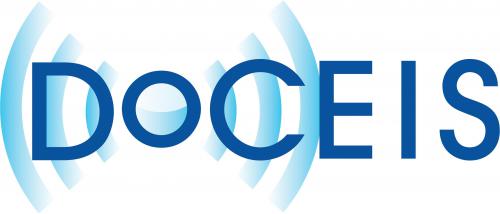Plenary Talks

|
Laura Ricci is an Associate Professor of the Department of Computer Science, University of Pisa. She received her diploma in Computer Science and her PhD from University of Pisa where she currently teaches several courses in the area of Computer Networks. Her main research interests are in the field of distributed computing, in particular P2P, blockchains and data intensive computing. She is the co-chair of the Large Scale Distributed Virtual Environments, LSDVE, workshop series, held every year in conjunction with EUROPAR. She has been the guest editor of several special issues in international journals and has chaired several workshops in International Conferences. Laura Ricci is author of more than 120 papers published in in refereed journals, books and international conference proceedings. |
Title: Blockchains Beyond Cryptocurrencies
Blockchain technology has been initially successfully applied to digital currencies, to achieve a tamper-free distributed ledger that securely stores all the transactions. The basic technology underlying Bitcoin is now attracting more and more attention all over the world and in fields that strongly differ from that of cryptocurrencies. The possibility of defining a distributed reliable memory that can store events without a trusted authority or a central server, has lead to the development of several blockchain-based applications, like identity management, supply chains, Internet of Things, edge computing, social networking, crowdsourcing , Cyber Physical Systems, e-voting and so on.
The talk introduces the basic concepts of blockchain technology, i.e. basic cryptographic tools, consensus and data structures, in the Bitcoin and Ethereum context. Then, it will be shown how important problem such as scalability, privacy, efficiency, and flexibility can be addressed. Finally, several applications of blockchains will be presented.

|
Kay Römer is professor at and director of the Institute for Technical Informatics, as well as head of the Field of Expertise "Information, Communication & Computing" at TU Graz, Austria. He obtained his doctorate in computer science from ETH Zurich in 2005 with a thesis on wireless sensor networks. As a senior researcher, he led the sensor network-related research activities of the Distributed Systems Group at ETH Zurich between 2005 and 2009. From 2009 to 2013 he held a professorship at University of Lübeck in Germany. Kay Römer is an internationally recognized expert on networked embedded systems, with research focus on wireless networking, fundamental services, operating systems, programming models, dependability, testbeds, and deployment methodology. He was the scientific coordinator of the EU FP7 FIRE project RELYonIT on dependable networking in the Internet of Things. He is currently the coordinator of the TU Graz Research Center "Dependable Internet of Things". |
Title: Dependable Internet of Things
Wireless networked embedded systems are increasingly used for safety-critical applications. Even in harsh environments and under deliberate attacks these systems must continue to operate correctly, which requires resilience - and more generally - dependability properties. In this talk we present recent research results obtained at the Dependable Things research center at TU Graz. Specifically, we will introduce methods to improve the dependability of wireless communication and localization, to improve the security of embedded computing, and to verify the correctness and interoperability of communication protocols used in the Internet of Things.

|
Zita Vale is full professor at the Polytechnic Institute of Porto and the director of the Research Group on Intelligent Engineering and Computing for Advanced Innovation and Development (GECAD). She received her diploma in Electrical Engineering in 1986 and her PhD in 1993, both from University of Porto. She has been involved in more than 50 funded projects involving the development and use of Knowledge-Based systems, Multi-Agent systems, Genetic Algorithms, Neural networks, Particle Swarm Intelligence, Constraint Logic Programming and Data Mining. Most of these projects concern several aspects of smart grids, network operation and electricity markets. Energy resources management, distributed generation, demand response and electric vehicles are important topics of her research in the current projects. |
Title: Enabling efficient management of distributed energy resources in the context of smart grids: A cognitive and multi-agent based approach
The talk addresses the current and envisioned options for the management of distributed energy resources in smart grids. Artificial intelligence based approaches bring important new possibilities enabling the efficient individual and aggregated management of those resources in the frame of a market-driven environment.
MARTINE (Multi-Agent based Real-Time INfrastruture for Energy), a platform to support real-time energy management and simulation of buildings and smart grids, will be described and used as the basis to present different data-driven and cognitive applications.
